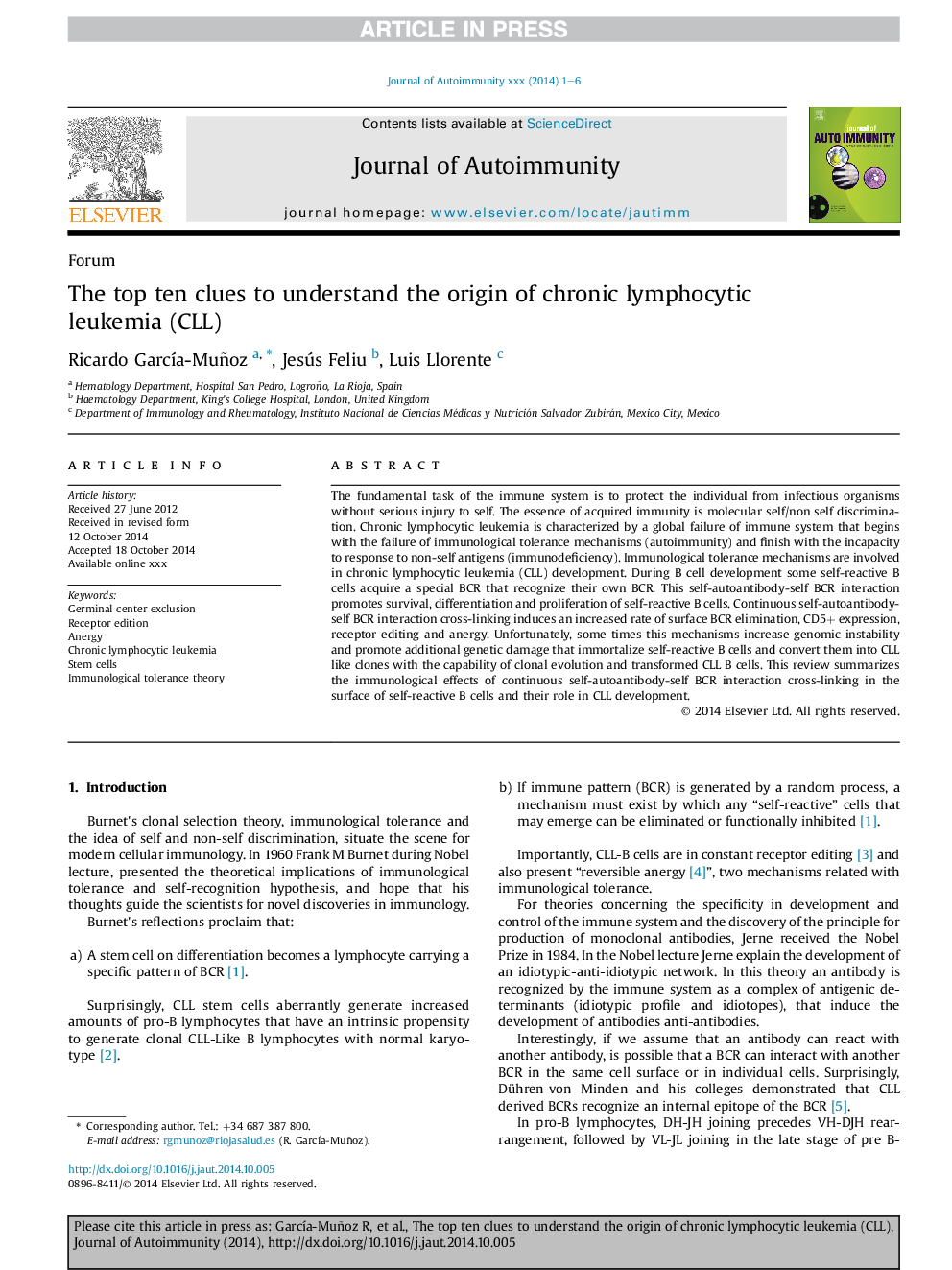| Article ID | Journal | Published Year | Pages | File Type |
|---|---|---|---|---|
| 6119251 | Journal of Autoimmunity | 2015 | 6 Pages |
Abstract
The fundamental task of the immune system is to protect the individual from infectious organisms without serious injury to self. The essence of acquired immunity is molecular self/non self discrimination. Chronic lymphocytic leukemia is characterized by a global failure of immune system that begins with the failure of immunological tolerance mechanisms (autoimmunity) and finish with the incapacity to response to non-self antigens (immunodeficiency). Immunological tolerance mechanisms are involved in chronic lymphocytic leukemia (CLL) development. During B cell development some self-reactive B cells acquire a special BCR that recognize their own BCR. This self-autoantibody-self BCR interaction promotes survival, differentiation and proliferation of self-reactive B cells. Continuous self-autoantibody-self BCR interaction cross-linking induces an increased rate of surface BCR elimination, CD5+ expression, receptor editing and anergy. Unfortunately, some times this mechanisms increase genomic instability and promote additional genetic damage that immortalize self-reactive B cells and convert them into CLL like clones with the capability of clonal evolution and transformed CLL B cells. This review summarizes the immunological effects of continuous self-autoantibody-self BCR interaction cross-linking in the surface of self-reactive B cells and their role in CLL development.
Related Topics
Life Sciences
Immunology and Microbiology
Immunology
Authors
Ricardo GarcÃa-Muñoz, Jesús Feliu, Luis Llorente,
